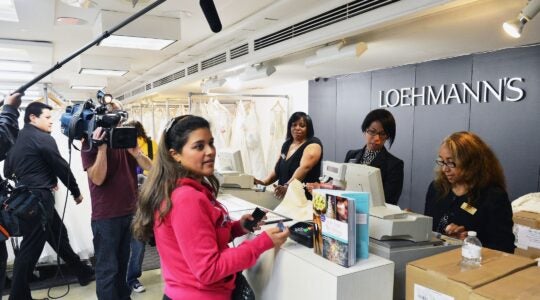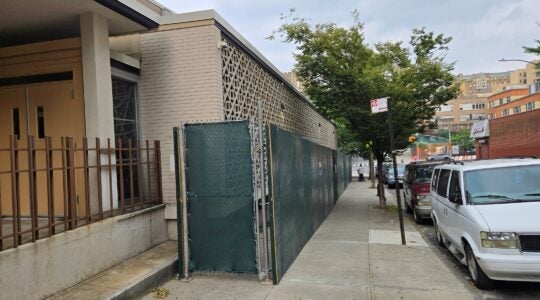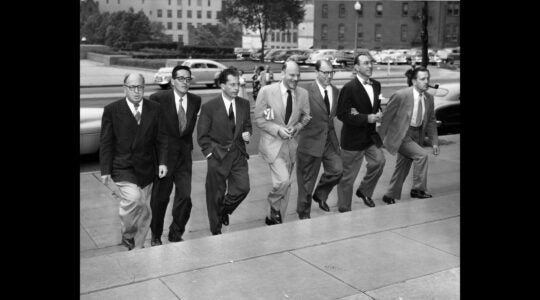Many years ago, I took an accounting course as part of a bank’s credit training program. So I became acquainted with assets and liabilities, at least as they pertained to a given company’s financial position. But lately, I’ve been thinking about all the ways in which my life as the parent of a special needs child has embedded within it its own unique kind of balance sheet.
One can say, I suppose, that life in general is a kind of balance sheet, an accumulation of assets and liabilities. True as that might be, there is something especially acute about the accounting associated with parenting a special needs child.
Let’s start with the liabilities, and with the losses. While they’re not one and the same, they do overlap in important ways. So a loss would be the dreams—even if only whispered to yourself—of what you hoped your child might have grown up to be, or grown up to be able to do. And the liabilities are all the things that prevent him from fulfilling those whispered dreams—the cognitive deficits, the speech impairments, the social un-relatedness, and so on. Those liabilities and losses pile up through the years, not only in the real world, but in your heart, where those unfulfilled dreams continue to beat, even if more faintly each year.
Added to those liabilities and losses are unexpected balance sheet complications. These are the relationships lost through the years because people just don’t “get” what you’re going through, can’t bend toward you in empathy–or worse–treat your struggles as equal to their “struggles” decorating their houses, or helping their kids fill out twenty college applications. The gap between the world you inhabit and the world some friends and relatives inhabit just becomes too wide. So slowly, you pull back. It’s just too painful to have to explain yourself—or to feel that you have to explain yourself. No one wants to win an Olympic gold medal in suffering and parenting struggles, but it’s just too hard to have people in your life who choose not to see, not to hear, and not to know. And all because really, they just don’t want to go there.
But every balance sheet has an asset side, and that’s the miraculous part of being the parent of a special needs child, at least for me. And it begins at home. Our son Noah had the incredible, lottery-like fortune of being the middle child between a deeply compassionate and loving older brother, and an insightful, supportive, firebrand of a younger sister. He also has wonderful aunts, uncles, cousins and grandparents, so there’s a magical ring of love surrounding Noah wherever and whenever he is with family. Add to that the teachers, therapists and above all friends—some quite new in our lives—who just get it, and that’s what keeps us going. It’s not as neat and tidy as the notion of a village raising a child. It’s more diffuse than that. It’s kind of like a small universe of always moving concentric circles where Noah can find support and love.
In spite of all that, the losses through the years have been crushing. They’ve included longstanding friendships that I stepped away from because I just couldn’t bear to pretend any longer that the failure even to ask about our struggles didn’t leave me both heartbroken and furious. But the gains have been much, much greater. Beyond the more limited support where I live, I have found love and support among friends outside my home community who just know what I need, think to ask, and never treat my struggles as just another point of weekly gossip. One of the best discoveries has been the deep, natural empathy and support I’ve found among several older women friends who don’t have children of their own. You don’t need to have kids to understand the pain and promise threaded throughout parents’ lives. You just need to have an open heart, and a willing ear. These friends have reminded me of that at every turn. And my balance sheet is overflowing with assets thanks to them and to everyone else who has made accounting for the pluses and minuses in our lives an exercise full of blessing, liabilities and all.
Nina Mogilnik’s professional career has encompassed work in the philanthropic, nonprofit and government sectors. Nina serves as the Resource Director for the Good People Fund. She serves on the board of Birch Family Services. Nina is also an avocational writer, and has had a number of essays about her experiences dealing with her father’s Alzheimer’s and her son’s autism published in Haddasah Magazine and in The Jewish Week. Nina’s proudest accomplishment — and hardest job by far — has been as a mother. Nina has degrees in philosophy from Union College (B.A.) and from the University of Chicago (M.Phil). She lives with her husband and kids outside New York City.
The New York Jewish Week brings you the stories behind the headlines, keeping you connected to Jewish life in New York. Help sustain the reporting you trust by donating today.




